In my first week as a chaplain intern (CPE) at the Rochester General Hospital in New York, I received a call from a doctor. He told me a family was requesting to see a chaplain. They had a 34-year-old young man who was dying. Before the medical team withdrew life support, the family wanted someone to pray with them.
This young man had been in the ICU for a long time. The family hoped he would get better, but when the doctors saw that his condition was worsening, they advised the family to let him go. Before they could do that, they needed the family’s approval. Making such a decision is always hard. It is not an easy experience to see your loved one go like that, especially when he is so young and energetic.
This was my first time walking into an ICU. I had a lot of anxiety and nervousness as I made my way to the floor. I did not know what to do or say when I met the family. It was my first time on call. What the doctor said made me aware that this was an end-of-life situation, and I did not want to do anything that could exacerbate the pain of the family.
When I got into the room, the environment itself felt heavy. The television was off. The curtains were drawn tight, shutting out the world beyond. The quietness pressed in on us all, as if the walls held their breath. Grief lingered in the room, waiting for what was to come. Three family members were standing at the bedside, crying. I saw the young man lying there lifeless, with tubes in his mouth and nose. The doctor introduced me to the family as the chaplain and left. Now it was up to me and the family. I told them my name and my role, and I also asked who was in the room. His aunt introduced herself, followed by her two sisters. Then the aunt asked, “Please, could you pray for him?”
At this point, I froze. Seeing the emotions in the room and the lifeless body of their brother, I did not know what to pray or how to begin. Usually, in such situations, my CPE educator taught me to ask if the family had any specific things they would want me to pray for. But I did not ask because I was anxious and confused. Immediately, my mind went to my friend Cecilia, who had lost her life in a very similar situation. Standing beside the young man, my friend, Cecilia’s memories came flooding back. I also stood close by Cecilia in her final days, holding her hand and praying for her to get well. You don’t want to think about anything other than seeing your loved one well at that moment.
Before I opened my mouth to pray, a thought pressed heavily on me: what if I prayed for him to rise, to breathe again, to live? I believe in miracles. I was raised to believe that prayer can move mountains, break chains, and undo death itself. My Christian upbringing was soaked in a faith that often equated God’s power with God’s willingness to do whatever we asked in faith. We were taught that “what God cannot do does not exist.” We speak it, we internalize it. When we decree and declare, it will happen. We only must speak it with faith, and God’s power will be displaced. So, I thought, why don’t I declare him fit and get him awake? In my early days in church, the first thing that comes to mind when we see a person with any form of physical disability is the power of God to heal, to touch, declare, and bind out any spirit of physical impairment. The blind must see! The deaf must hear!! And the disabled person must walk!!! That was what the reality of faith meant to me.
I grew up watching it in African movies. By declaring the name Jesus, we see powers and miracles on display and the visible proof of the living God. So, there I was in that hospital room, beside this young man, who was almost giving up, my evangelical reflex tugging at me: You can do this, pray and let him be healed. Do something, fix it. Prove your faith. If I couldn’t pray to bring him back to life, what then did my faith mean? Wasn’t prayer meant to show the world that God is alive? These questions swirled in me as I tried to discern what to say to God in prayer. My confusion made me scared. What do I do?
But as I contemplated silently, I had an unusual feeling, as if a voice was speaking to me, almost like a whisper cutting through the noise of my thoughts: “Okay, you want to pray for this young man to wake up? But why do you think that is what he wants? Is that God’s will for him? Or do you want to prove something to yourself? You want to show that your God can still perform?” These questions pierced me. In that moment, I saw my own selfishness as a Christian, I wanted to meet my own expectations and not that of the family who invited me. I was called into the room to “be with the family”, not “to do for the family.” I was there to be present with the family, with their grief, and to affirm God’s presence with them. I realized I had so much to learn about God and my faith. I saw I had nurtured a belief that focused on “doing” instead of “being.” I have always been rushing to speak, to act, to perform. Rarely had I practiced the faith of being, resting in God’s presence, listening instead of talking, surrendering instead of trying to control.
It struck me with unsettling clarity: so much of our faith has been shaped by action, performance, and compulsion “to do,” “to fix,” and “to show.” Yet when this family called me into that sacred space, they were not seeking a performance. They did not need a spectacle of prayer to convince them of God’s presence. They already knew God was with them. What they longed for was something far simpler yet more profound: my presence with them to affirm God’s presence in their grief. They need me to sit with them. To hold silence with them. To breathe in and out with them, and to join them in sharing a quality and memorable time with their loved one. In that moment, I discovered that not “doing” but “being” was enough. They did not invite me to “do” [something] for them; they invited me to “be” with them. And that distinction revealed to me the heart of faith I had too often overlooked. The nature of God we have been too busy to see.
So, I made a simple prayer, I said:
Creator God, receive Mr. P into your loving embrace. Hold him in Your eternal peace. Surround this family with the comfort of Your presence. Strengthen them in these heavy days. May the memories of Mr. P, the gift of his life among them, become a well of unity, love, and grace. Stay near, O God, and let them know that Your being is enough. Amen.
After my prayer, tears began to roll down like a living river. The auntie hugged me profusely as she cried out; she did not want to let me go. I saw God’s presence in a unique way with the family. The feeling and emotions were different than before. The family seemed more ready than before. They felt that their brother had been accepted into God’s arms. One of the sisters remarked, “now he can rest in peace with God,” still crying. “Thank you, Alfred.” They called the doctor back into the room. Then the doctor gently turned off the life support, and the young man released his final breath. Hmm… the heart monitor slowly flatlined, the beeping faded, and then came that long, piercing sound, signaling that his heart had stopped. The heart rate on the monitor got to zero and made a loud sound. The doctor checked his watch and made the pronouncement: “Time of death, 11:10 a.m.” He looked at us softly and said, “I’m so sorry for your loss. I’ll leave you with the chaplain,” He quietly stepped out of the room.
Standing in that room, I had a parallel emotional experience, as though I was again at Cecilia’s bedside. It was as if time folded in on itself, and both losses collided within me. I could not stop thinking about that young man and his family for weeks. But what has stayed with me most profoundly is the sorrow and the way my theology was shaken. My faith was no longer abstract, just doctrines or words I decree and declare. My faith trembled in that moment, fragile, raw, searching, and “seeking understanding.” I realized that my theology of prayer cannot remain untouched when confronted with death. It must breathe, weep, and wrestle. And in that wrestling, I began to see God differently.
We live in a society that prioritizes productivity: hustle culture, efficiency, output. But God does not call us into the ministry of “doing.” He calls us into the ministry of “being.”
Think of it. God’s name YHWH (often transliterated as Yahweh) is from the Hebrew verbal root HYH (היה), which means “to be / to become / to happen.” It speaks of being, existence itself, dynamic, ongoing, not static. God is not defined by action but by being. God is the reality that simply is, was, and will be ( Exodus 3:15). God introduces Godself to Moses by God’s presence with a verb, “I AM / I will be”; thus, our calling is presence, not performance.
Our calling is based on who we are in God, not what we do for God. Just as God’s presence was enough to send Moses, our being with God empowers our work, not the other way around. That day at the hospital, I was reminded that we serve the I AM, not the “I do” God. And in that sacred name, we are invited to live lives that flow from being with God, fully known, fully loved, fully present, knowing that God calls us to be, not to do.
In a world obsessed with performances, achievement, and proving our worth, I invite you to stillness and attentiveness. To serve the “I AM” is to learn the sacred rhythm of presence, rest, listen, and be fully where we are. We serve not the “I do” God, but the God who simply is and who invites us to share in that being:
To live in the name of YHWH is to practice attentive presence:
To be with God in prayer, without rushing to speak.
To be with others, listening deeply before responding.
To be with ourselves, embracing both our light and our limits.
God’s call is not first to do something but to be something: Be kind, be faithful, be holy, be generous. When we learn to be with God, we learn to listen, to discern the gentle movements of grace in our lives and in the lives of others.
As you reflect on this message, I invite you to pause and turn inward momentarily. Think about your life, your relationship with God, yourself, and others. How often do you truly allow yourself to be still? To step away from the noise, work, school, and simply be? When was the last time you sat quietly, not to pray for something or plan the next thing, but to listen to your heartbeat, your breath, and the quiet whisper of God’s presence that’s always there, waiting to be felt?
This week, you can give yourself the gift of stillness, even for a few minutes daily. Sit with a cup of tea, or even with nothing, watch the sunlight move across the room, breathe deeply, and remind yourself: I am with the I AM. That alone is enough.
And think, too, about the people in your life.
Is there someone who needs your presence more than your advice?
A friend who doesn’t need you to fix things, just to sit beside them and listen?
Someone who needs a phone call to tell them you will be there for them?
Offer that gift. Be the calm in someone else’s storm. Sometimes the most sacred thing we can do is not to speak, but to show up, with our full attention, compassion, and open heart.
A family member whose silence is really a cry for company.
In a world that constantly tells us to do more, may you remember that God calls us to be:
Be still.
Be present.
Be with.
Because in learning to be, we make space for love, the kind that heals, restores, and reminds us that we are never alone. That was the day my theology wept, and in its tears, I still smile because Theology is fine indeed! Trust me!!
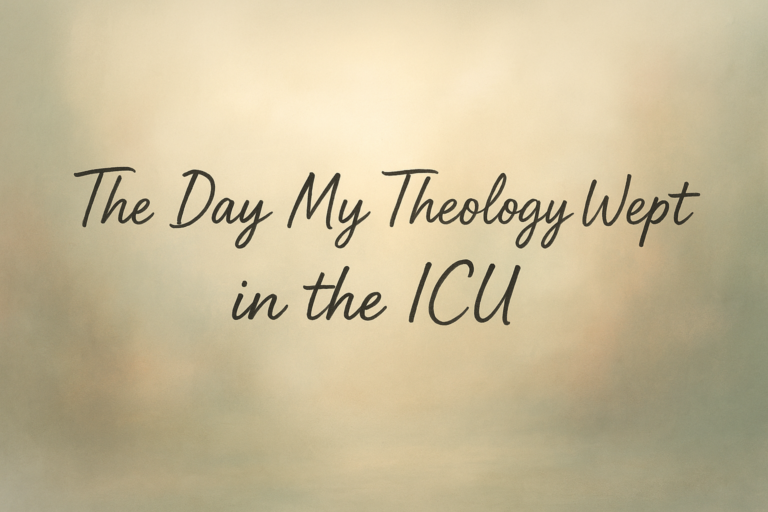

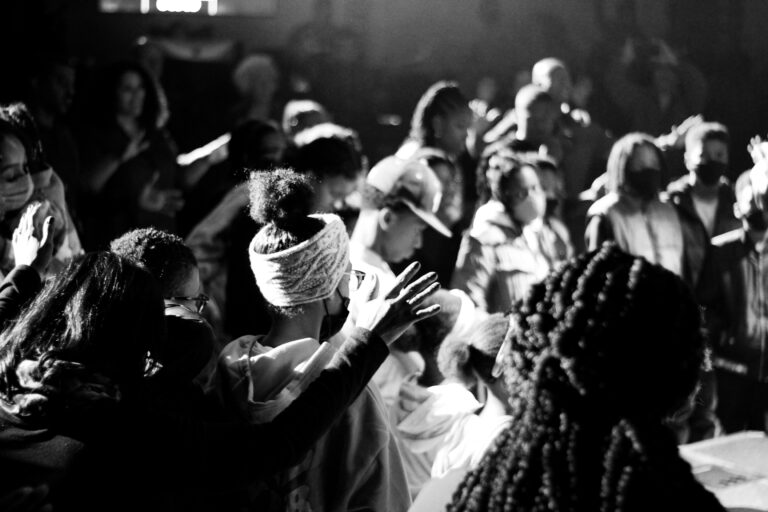

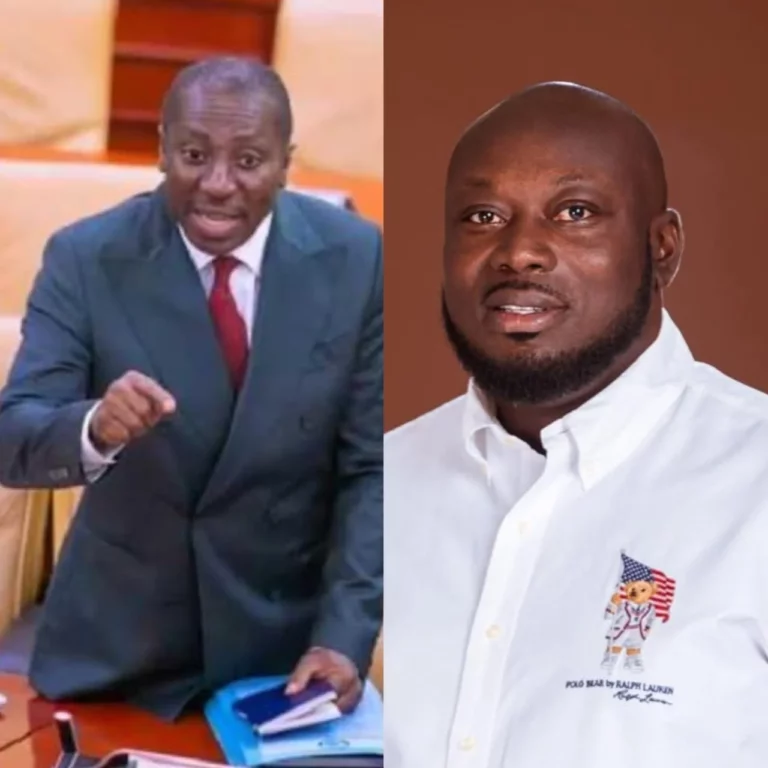
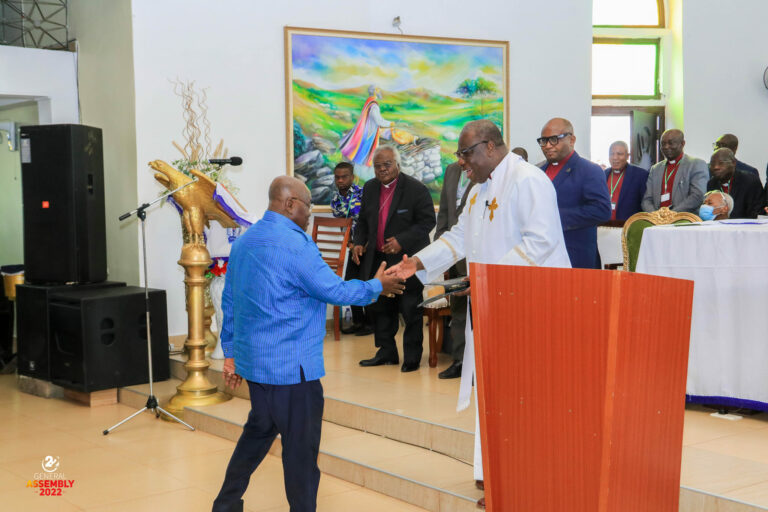
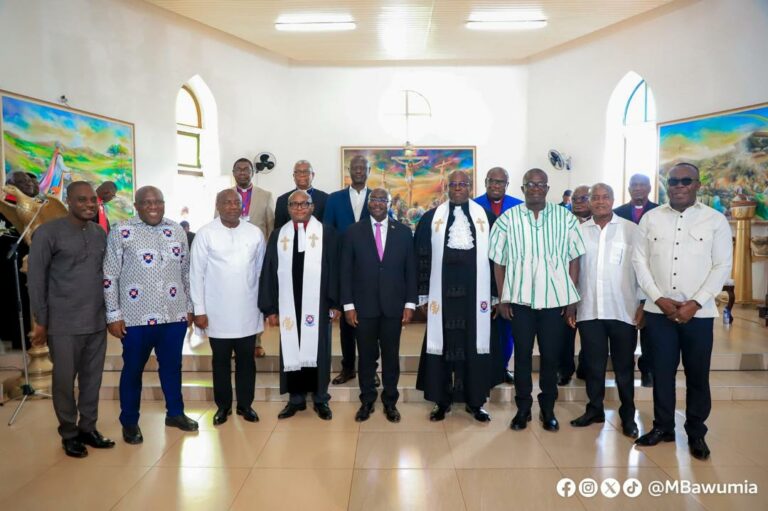
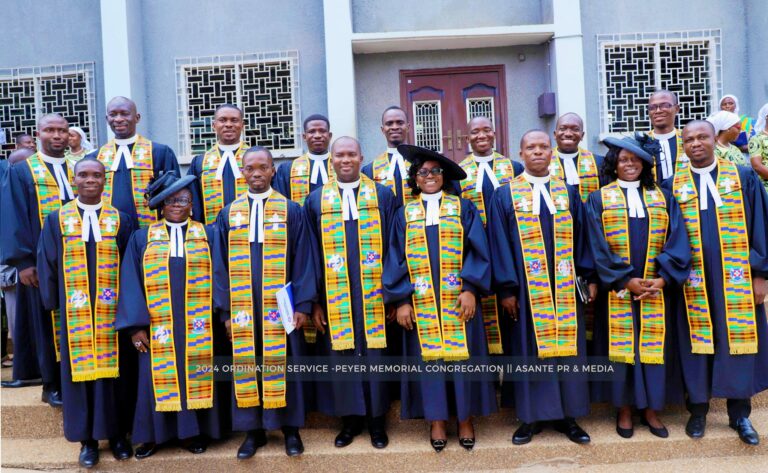
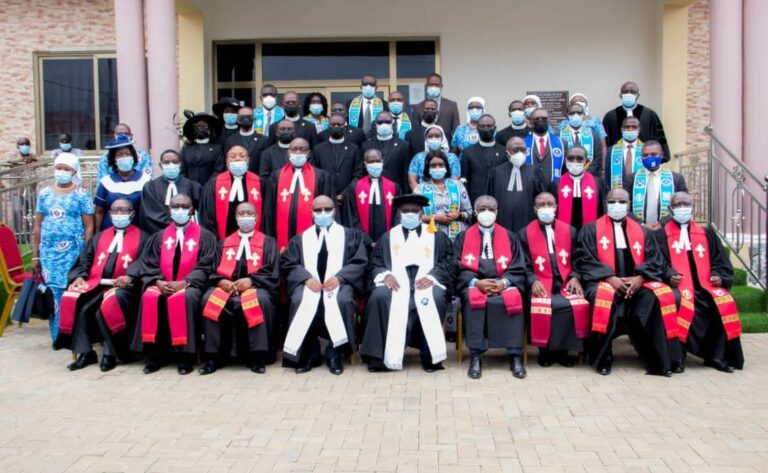

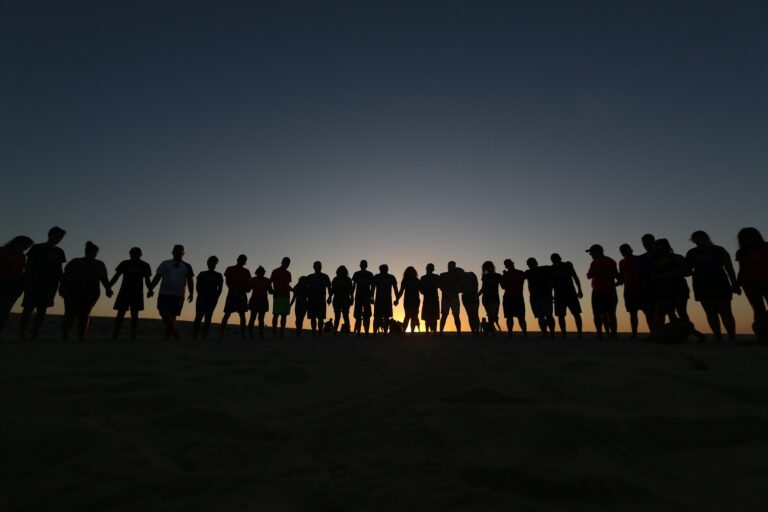

This Post Has 38 Comments
Thank you for sharing. This is a powerful piece. There is more about this piece that I need to reflect on. God bless you
Medaase Papa. Thanks for reading
That was a pathetic encounter Alfred nonetheless God used you as a beacon oh hope to the family.
We pray God continue to use you more to assist humanity
Thank you Ama
Very inspirational. God bless you bro.
Thank you Joe Teeee
Great experience and write-up Alfred. Always difficult to see family grieve and finding the right words to say can be daunting. Thanks for reminding us that just being present and silent in such times is enough
Yes, Akwasi, grieving is always hard to experience. We ask for God’s grace to comfort all grieving families.
Awesome eye opener. The presence of God is what I yearn for in my stillness
Papa thank you for being here. Indeed, we must yearn for God’s presence.
God bless you for sharing Chairman. May the Lord grant us the Grace to know His will and to do it.
Please don’t stop your write-ups and videos as they keep inspiring some of us.
Thank you, Agiee, for your kind words.
This is a beautiful piece, Chairman Alfred. It’s a clarion call to pause, in the midst of life’s unending billows and demands on us, and focus on the I Am, the presence of God, to still our spirits and allow the presence of God to fill our hearts and lead us in His calm, peaceful and ever hallowed presence.
Yes, we need to focus on the I AM. Papa, thanks for reading
Lovely write up! I would need to read this everyday as a reminder to myself. Thank you
Adina, thanks for reading
Theology is fine as always. A lot to reflect on. May God help us to be still and listen more to him.
Yes, we pray for God to “help us to be still and listen more to him”. Thanks for reading
Wow. this is all in all.
Truly a time to reflect and be called according to the Being he wanted for our maturity right from the beginning.
Comfort in the midst of noises.
Thank you for sharing sir, this is a master piece of the Kingdom.
Thanks for reading, Peter.
This is powerful. Reading through this article, the Bible passage that kept flooding my mind was “Be still and know that I am God” (Psalm 46:10), finding peace and calm in the Lord’s PRESENCE is what I must seek daily. You’ve encouraged me my brother.
Yes, we must learn to “be still” and know that God is God. Thank you Presidoo
This is revealing a whole lot of reality and giving a unique direction to faith.
“our calling is presence, not performance.”
#TheologyIsFine
Indeed “our calling is presence, not performance.”
Real test of faith and knowing the will of God for man at every stage in life. A difficult situation, Alfred. May God continue to strengthen us for His ministry.
Thanks for being here Tony.
Thanks so much for sharing your experience, Alfred. There’s a lot to learn and reflect on from what you’ve shared.
Thanks for being here Dr. Baidoo
That’s indeed the truth and reality some of us fail to see. I realized that we are constantly trying hard to do something, mostly with the believe that what we do justifies us before God or it makes us more “spiritual”. Sometimes, I even felt I am not doing enough, and that made me think God is not pleased with me. Thank you Alfred for helping us see the clear picture of who God is calling us to be. God bless you. Surely, theology is fine
I like your comment so much, Clement. We always want to do something to be justified before God. Yet we don’t need to. Thank you
Wow, it has never cross my mind before as I always go to bed thinking and planning of what to do next in the morning and wake up thinking and planning about how to achieve these targets. I pray for Grace to ” be”.
Very powerful article, God increase his oil on you.
Send me the whenever you post your article
Thank you, Tagoe. We ask God for Grace in our understanding
This is Wildly moving and the best piece I have read in a long while. You are amazing Alfred. My our faith be challenged in a good way so that it can mature
Thank you, Paul, for being here.
God bless you for this write up. Sometimes we want to pray for something to happen at all cost. As a Minister’s wife I’ve always cried my heart and eyes out when a member is lost. Sometimes the guilt will not leave me when I know I’ve not prayed much for the person. Seeing people in pain breaks my heart and I wished God came through at all cost. This write up has given me a second thought. Thank you
Thank you for sharing your experience too
This is a powerful experience and message. And a message to believers that God is God and with us all the time, through the joyful and challenging periods. He didn’t need to prove himself to show that He is with us.
God bless you, Alfred.
God bless you too, and thanks for reading